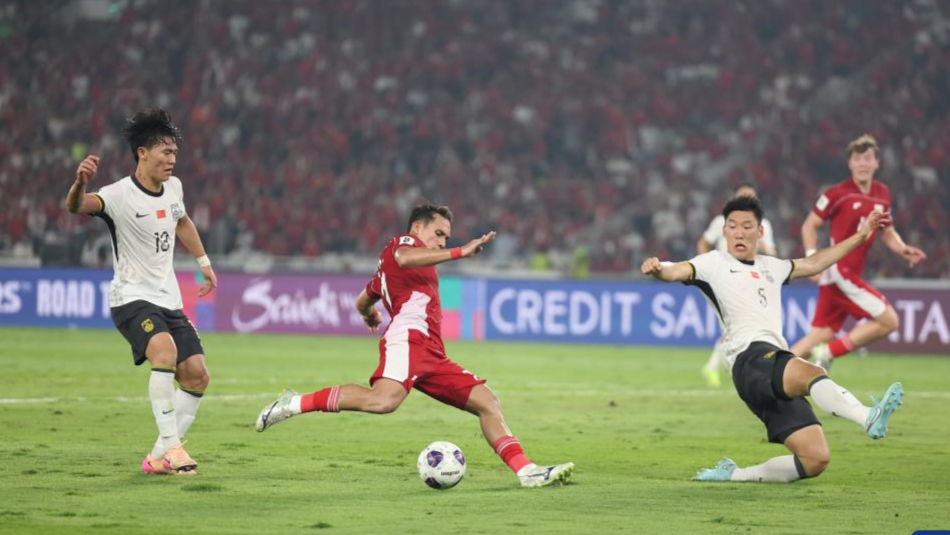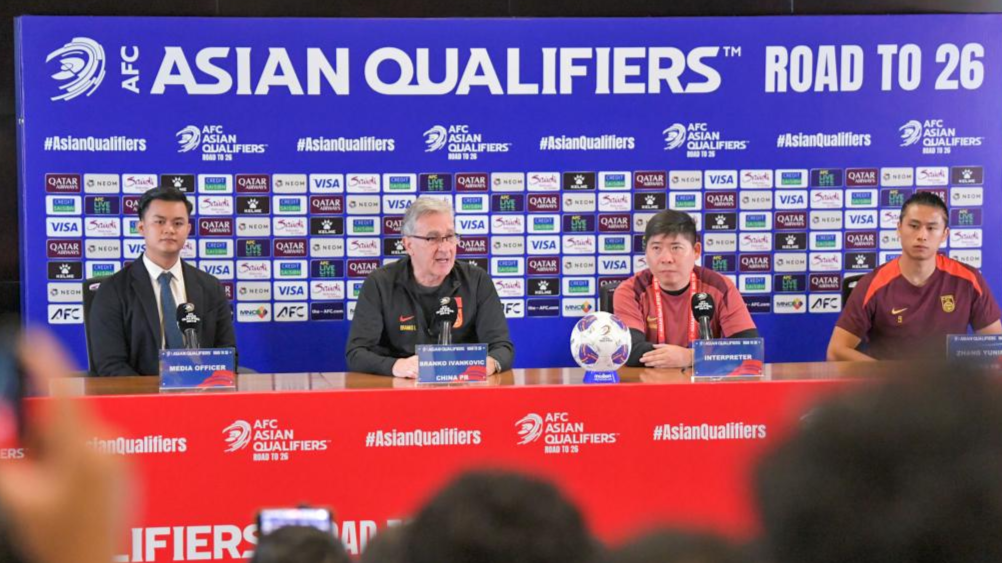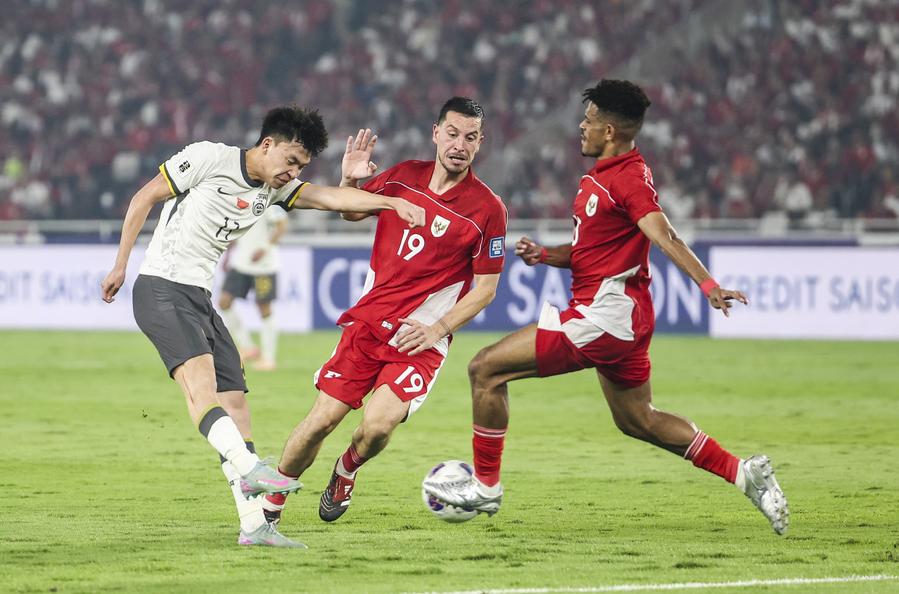
Let's cut to the chase — the Chinese men's soccer team simply doesn't deserve to be in the World Cup, and it never will until substantial reforms are carried out with commitment and perspective to ensure the game's healthy development in the country.
Frustratingly, yet not surprisingly, the door to the 2026 Cup finals slammed shut barring the Chinese national side entry after a 1-0 loss to host Indonesia in a do-or-die Asian qualifier on Thursday.
With the Chinese men's soccer team's hopes of returning to FIFA's marquee tournament dashed once again, fans and pundits alike have suggested that the underachieving team's knockout actually did the showpiece a favor.
"The presence of this team in the World Cup, should it have made it there, would have compromised the tournament's quality," former Team China captain Fan Zhiyi scathingly said after commentating on the match.
"The team was already lucky to make it here (the third-stage Asian qualifying tournament). They just don't have what it takes to make it further, as simple as that," said Fan, a formidable centerback in China's 2002 World Cup squad.
Only the top two finishers in each of the three groups directly qualify for the expanded 48-team Cup finals to be held in the United States, Canada and Mexico next summer, with the third- and fourth-placed teams advancing into a fourth phase to vie for two remaining tickets.
Rooted to the bottom of the six-team Group C with only six points from nine fixtures, Team China has one last, but totally irrelevant, qualifier to play against fifth-ranked follow group minnow Bahrain on Tuesday in Chongqing, where a mixed reaction from the home crowd is expected.
"They owe us so much. We've stuck with them through thick and thin. Yet their performances were far from enough to match the level of loyalty and support of all the Chinese fans," said He Dapeng, an organizer of a Team China fan club based in Shenyang, who's watched all the team's previous nine qualifiers on-site in the third stage.

The continuous decline of the men's game was underlined by the team's performance in the qualifiers, scoring six goals in nine games while conceding 20. The men's national side has now failed to qualify for the World Cup finals for six editions in a row, since its sole appearance in 2002.
This has exposed the game in China is lagging far behind international contenders — even measured by continental standards — on all fronts, from grassroots promotion to youth development and league operations.
ALSO READ: Ivankovic accepts blame for China's World Cup qualifying exit
What was heralded in 2002 as the beginning of a new dawn for Chinese soccer, with Fan's generation realizing the country's long-cherished World Cup dream, has turned out to be merely a prelude to a series of embarrassments on the international stage.
"This team has been fighting for this goal for over 20 years," Branko Ivankovic, Team China's Croatian head coach, said through a translator in the post-match news conference in Jakarta.
"We believed that if we could reach the next stage from this tough group, we would have a strong chance of qualifying. But we didn't succeed and, as head coach, I definitely take significant responsibility."
Of course he does, after having stubbornly stuck to his one-defending-midfielder "diamond" formation, which has proven incompatible with his players' individual strengths and weakness, resulting in a fragile defense and sluggish offensive transitions.
The 71-year-old former coach of Chinese Super League club Shandong Taishan insisted he's brought together the best of China's talent, while, in fact, some of his selectees on the qualifying tournament roster are not even key players in their respective CSL clubs.
"The one-defender midfield really doesn't suit our players and it's proved a vulnerability in several key matches," Sun Jihai, the former Manchester City defender and a formidable member of the 2002 Cup team, said in a social media post on Friday.

However, all debates over the loss to Indonesia, or the tactics deployed in the team's previous defeats, pale in comparison to the lacks of consistent efforts to improve the youth training system, reasonable investment in domestic leagues and a true culture appreciating the game across the country, said pundits.
"It's time to forget about any quick fix and kick off an overhaul of the sport's entire eco-system in our country," said former China Central Television commentator Huang Jianxiang.
Sun suggested that Chinese clubs should invest more in developing talents at the grassroots level, rather than spending lavishly on high-profile imports for quick results in league competitions, and to do it in a way that respects the rules of the game and matches international practice.
"Maybe we've been obsessed with results at the elite level for too long. It's time to get down to what really matters: Working on youth training and league development with long-term plans and consistent efforts," said Sun, who, in recent years, has been running youth training programs in his native Liaoning province, the Xinjiang Uygur autonomous region and Yunnan province.
"We need to help players with true talent, maybe not in size or physical strength at the tender age, learn how to play the game in the right way, with the focus on building strong characters and good habits on and off the pitch.
READ MORE: Hopes fading
"Only by doing this with a long-term perspective can we discuss having some success at future World Cups, rather than reflecting on more harsh lessons after another failed campaign," he said.


